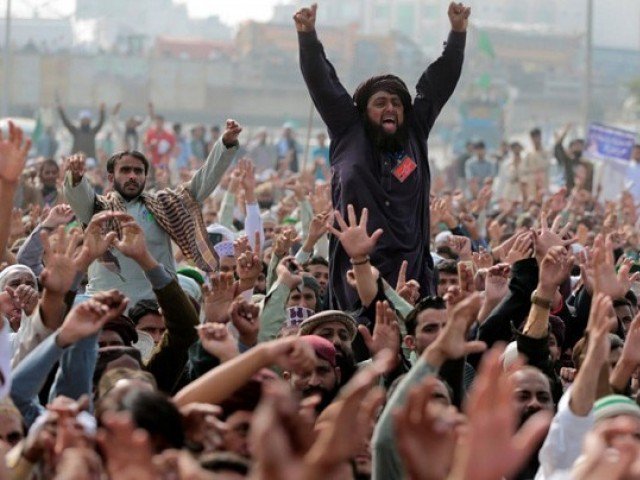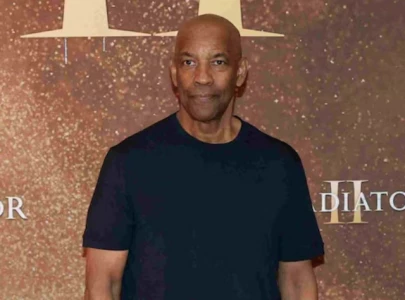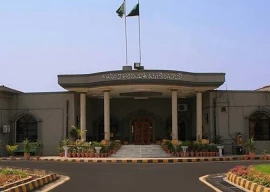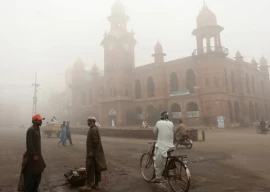
“We are undermining supremacy and sovereignty of parliament each and every time,” Justice Isa said on Thursday while hearing, together with Justice Mushir Alam, a suo motu case regarding the 2017 Faizabad sit-in staged by the Tehreek-e-Labbaik Pakistan (TLP) against controversial changes in lawmakers’ oath
“Don’t blame parliament,” Justice Isa told the Attorney General for Pakistan (AGP) Anwar Mansoor Khan when he said the parliament ‘erred’ by not offering penal consequences for political parties not submitting their ‘campaign finance’.
Govt told to submit rules governing secret agency
Justice Isa made it clear that ‘every force’ in the country is subservient to the Constitution and if anyone is not then it is a ‘traitor’ in view of Article 5 and 6 of Constitution. “Are we living in a police state? We have already lost half the country,” he remarked.
The judge also inquired about the ‘force’ that decides which channels can be run and which cannot.
“I will not live in a state of fear. If freedom of speech and access to information cannot be ensured then Article 19 and 19 (A) of the Constitution should be repealed. Do not make a mockery of the state. We have allowed controlled media state,” he said.
Expressing concern over the present state of affairs, Justice Isa said Pakistan did not come into being through a battle but because of constitutional minds of Quaid-e-Azam, Liaquat Ali Khan and his father. “No bullet was fired during the movement as pen, paper and tongue were used.”
The bench later reserved its verdict in the suo motu case about the TLP sit-in that paralysed life in the twin cities for over two weeks. The bench conducted several hearings and examined both role of the intelligence agencies particularly the Inter-Services Intelligence (ISI) as well as conduct of the TLP.
Interestingly, hearing of the case was not held for four months when the TLP was busy in campaigning for the July 25 general election. Last month, the bench resumed hearing of case and later raised a question about registration of the TLP as a political party.
To a query of the bench, the AGP opined that the TLP is violating section 212 of the Election Act 2017, which says the government may initiate proceedings for dissolution of a political party which is ‘operating in a manner prejudicial to the sovereignty or integrity of Pakistan or is indulging in terrorism’.
However, he, while agreeing with the contention of the Election Commission of Pakistan (ECP), stated that there are no penal consequences, if a party does not submit the ‘campaign finance’ of the general election except that it would not be allotted an election symbol.
The bench again expressed concern over the ECP for showing inability to take coercive action against a political party for not submitting the ‘campaign finance’.
The ECP Secretary Babar Yaqoob said the commission has written a letter to Interior Ministry to furnish details of any political party, which is involved in terrorism activities.
Justice Isa said every institution is supporting those who have taken the law into their own hands. “The ECP is constitutional body and it has the mandate to do anything in this regard.”
Faizabad protest: Top court irked by non-filing of TLP sit-in report
The bench also wondered how a person holding the National Identity Card for Overseas Pakistanis (Nicop) could register a political party [TLP] but could not contest an election
Earlier, the defence ministry submitted in a sealed envelope a report regarding mandate of the ISI in line with the bench’s November 20 written order.
The top court had taken exception to the intelligence agency citing ‘inability’ to provide tax details of the TLP leaders and directed defence ministry to furnish details of the intelligence agency’s mandate.
In its report, the agency had said it did not have the mandate to collect the details as the Federal Board of Revenue (FBR) is the relevant department.
To a query about May 12, 2007 protests in Karachi in which more than 50 persons were murdered, the AGP said that the matter is sub judice. Justice Isa asked whether anyone was convicted in that case, adding that it was the state which came in the way of a peaceful protest.
Responding to a question, the AGP said Gen Musharraf was ruling the country at that time.
The judge again asked whether the Pakistan Tehreek-e-Insaf (PTI) apologised, when its claims about rigging in 2013 polls were found unsubstantiated by a judicial commission led by the former chief justice Nasirul Mulk.
Will Pakistan be run through street power, asks SC judge in Faizabad sit-in case
Blocking television broadcast
The bench expressed displeasure over the report submitted by the Pakistan Electronic Media Regulatory Authority (Pemra) with regard to blocking transmission of a TV channel.
The report was furnished in accordance with the November 20 written order. The bench had termed Pemra’s reply as ‘non-serious,’ and sought a fresh report. The order had noted that broadcast of any channel cannot be curtailed by any cable operator.
The judge said those channels, ‘which are praising’ [the powers that be], are being allowed to run but others are not. He asked about the forces, which compelled to stop transmission of TV channels. He said people who break the law do not issues ‘advisories’ as they just phoned to control the media.
The judge also asked the AGP whether he believed that there is some truth in media persons’ claim about restriction on media. The AGP said if there is complaint then there may a problem.

1732090022-0/Elmo-and-Amelia-(1)1732090022-0-165x106.webp)
1725523665-0/Minecraft-Movie-(1)1725523665-0-165x106.webp)

1732089759-0/BeFunky-collage-(75)1732089759-0-165x106.webp)
1732091859-0/BeFunk_§_]__-(10)1732091859-0.jpg)
1732083221-0/BeFunk_§_]__-(8)1732083221-0.jpg)



1732094891-0/Copy-of-Untitled-(52)1732094891-0-270x192.webp)






COMMENTS
Comments are moderated and generally will be posted if they are on-topic and not abusive.
For more information, please see our Comments FAQ